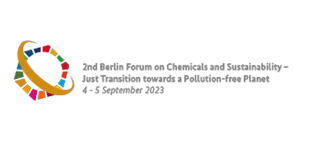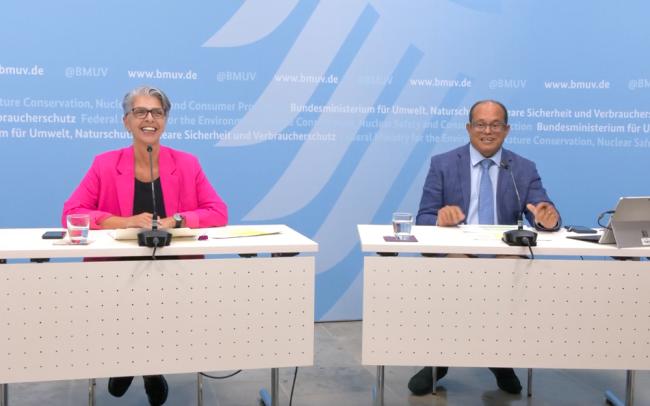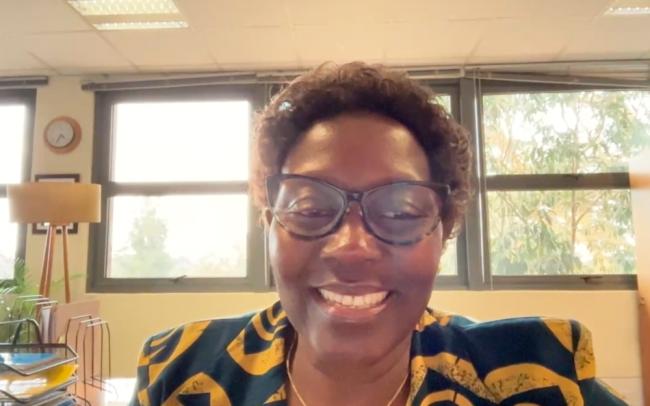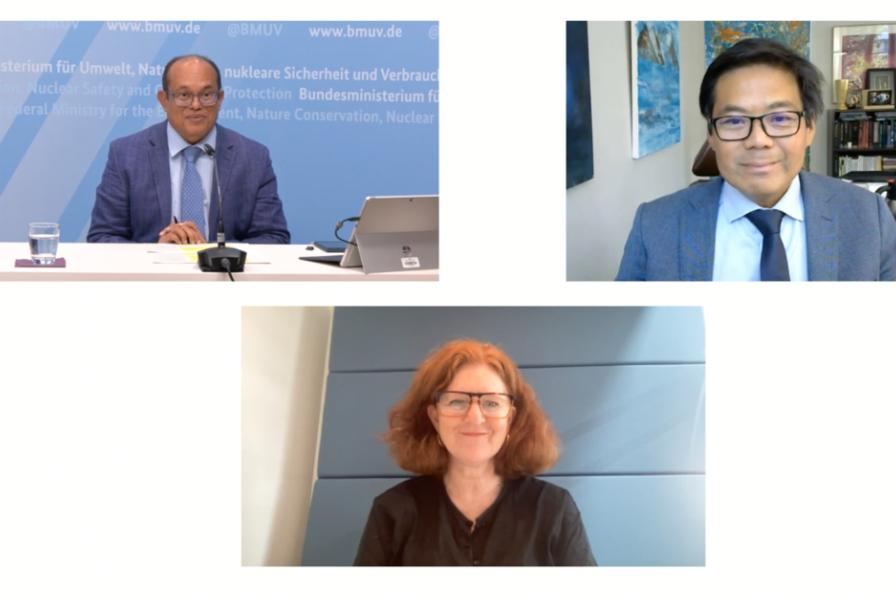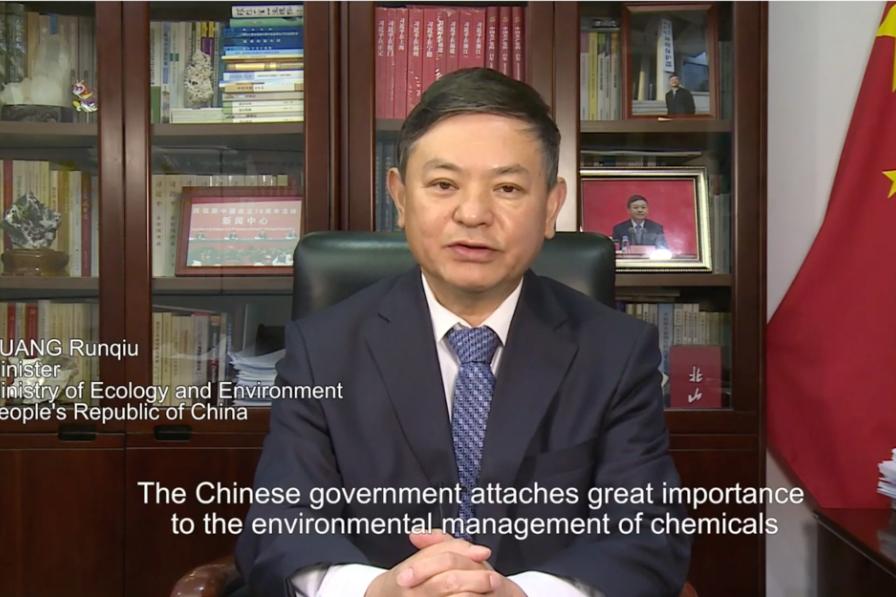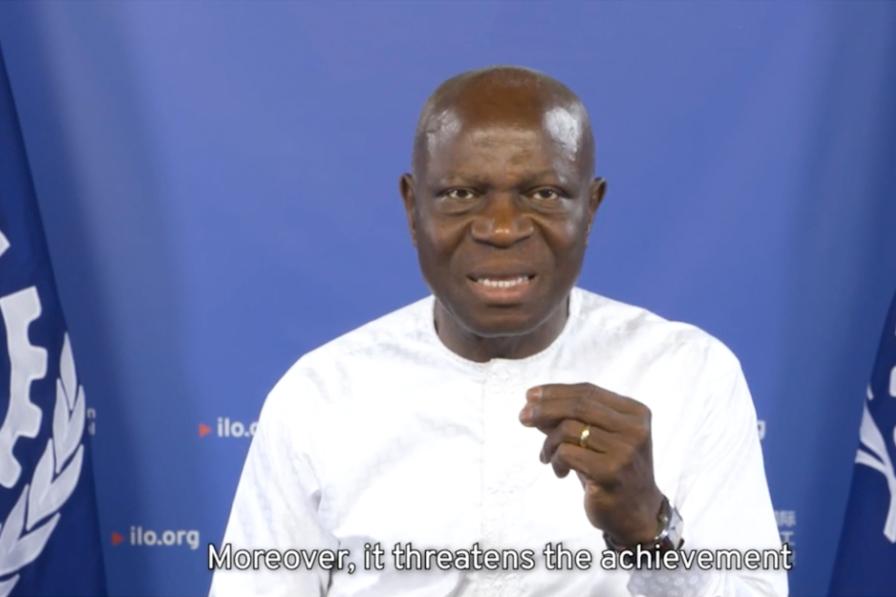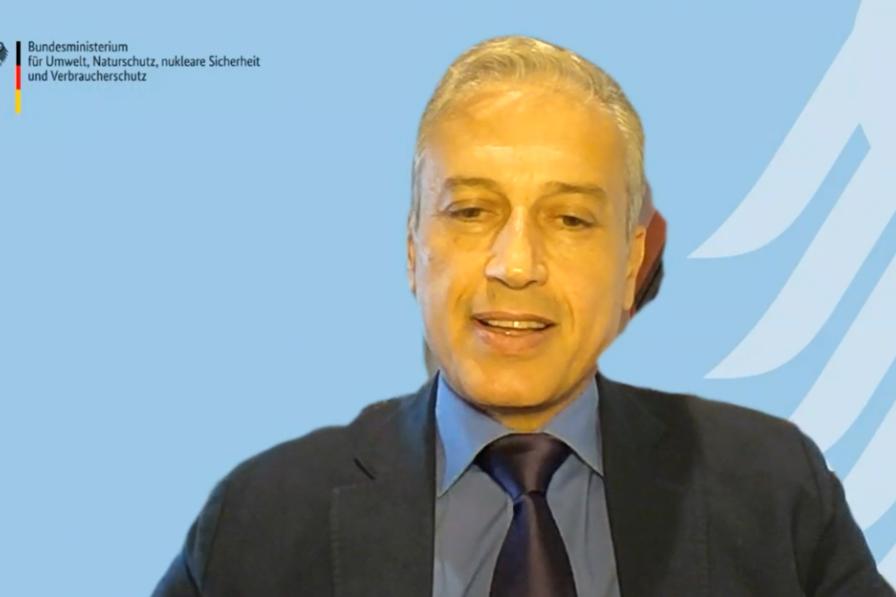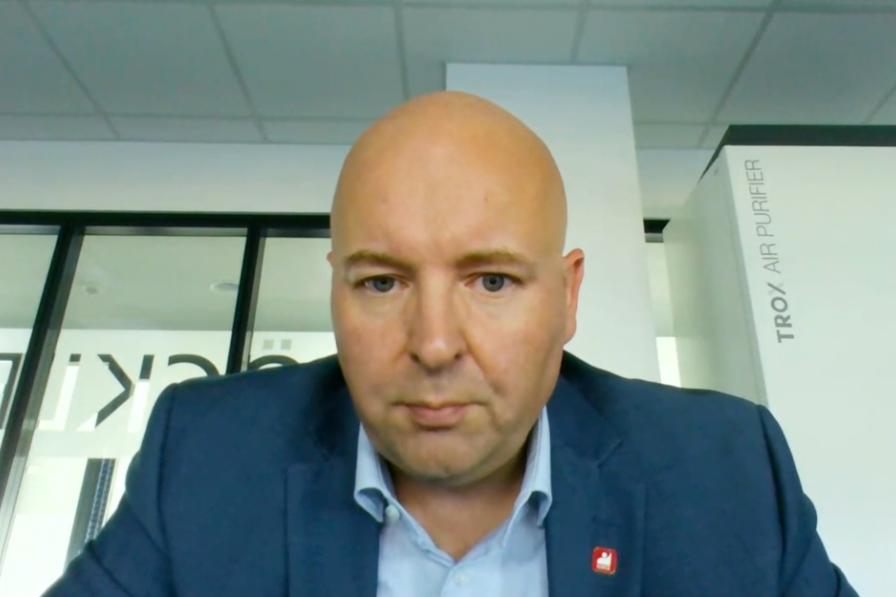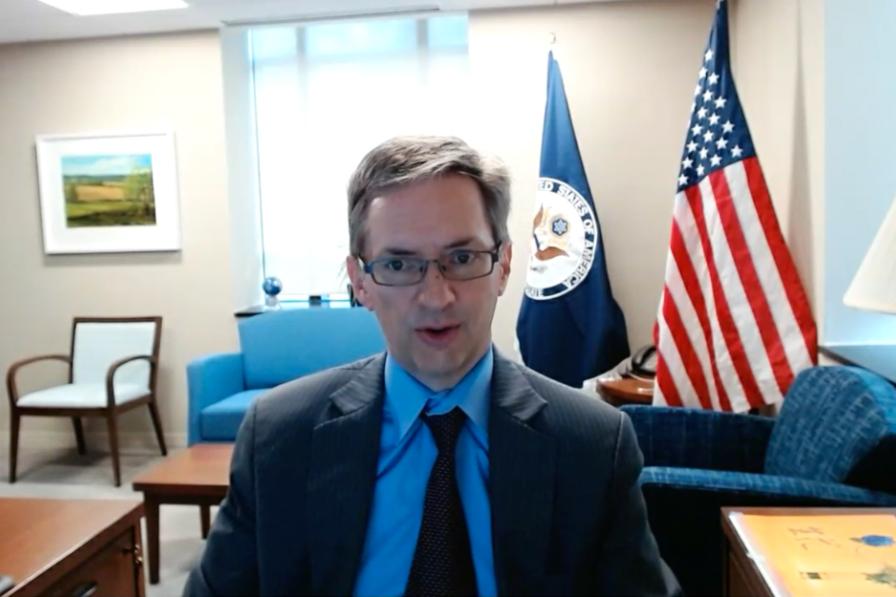On the second and final day of the 2nd Berlin Forum on Chemicals and Sustainability, participants convened in two high-level dialogues: considering how to strengthen the role of occupational health and safety, and decent work in all sectors that use chemicals; and exploring innovative solutions that can support a just transition. The Forum concluded with a call by Christiane Rohleder, State Secretary, Federal Ministry for the Environment, Germany, for all stakeholders to work together to reduce the chemicals footprint of our societies. She urged drawing on the spirit of unity and action at the upcoming 5th International Conference on Chemicals Management (ICCM5) to reach an ambitious agreement in sustainably managing chemicals and waste beyond 2020.
In a keynote presentation during the High-level Dialogue on Labour and Occupational Health, Gilbert F. Houngbo, Director-General, International Labour Organization (ILO), stressed that the use of hazardous chemicals in the workplace also affects the public and the environment, and threatens the achievement of decent work and social justice for all. Noting the ILO advocates for fair labor practices, he called for urgent improvement in the management of chemicals in the workplace, combined with a fair and inclusive transition towards a greener economy and a pollution-free planet.


